|
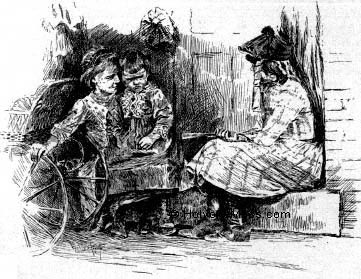
A Maid With Shaving Curls.
|
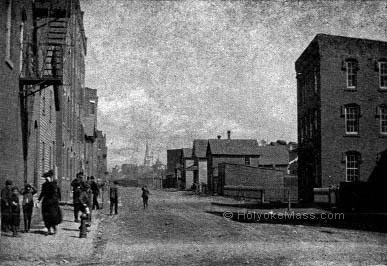
Park Street, North from Cabot.
|
There is a sense of strength and advantage springing from however slight gains to manly character. Say what we will about "honest poverty"&—and I would say nothing against it, for I well know there may be built barriers of poverty about a man, not to be passed, yet within which he may nourish a royal manhood — still the men who escape from poverty into independence wear a nobler mein than those who keep even with the world. Burns is the poet of the poor man, and has almost glorified poverty, but he never put into any of his verses more of his broad common sense than into these:—
"To catch Dame Fortune’s golden smile,
Assiduous wait upon her;
And gather gear by ev’ry wile
That’s justified by honor;
Not for to hide it in a hedge,
Nor for a train attendant;
But for the glorious privilege
Of being independent."
|
It is a great part of this battle of life to keep a good heart. The prevailing mood of the poor is that of sadness. Their gayety is forced and fitful. Their drinking habits are the cause and result of their poverty. It takes but little to redeem one from this feeling. The spirit and purpose of saving thrift change the whole color of life.
It can hardly be expected that you will look ahead twenty or forty years, and realize the actual stings of poverty and the sharper stings of thriftless habits; but it may be expected that you will see why it is wiser and more manly to save than to spend. There is a certain fascinating glare about the young man who spends freely; whose purse is always open, whether deep or shallow; who is always ready to foot the bills; who says yes to every proposal, and produces the money. I have known such in the past, but as I meet them now I find them quite as ready to foot the fills, but generally unable to do so. I have noticed also that the givers, and the benefactors of society, had no such youthhood. This popular and fascinating young man is in reality a very poor creature; very interesting he may be in the matter of drinks, and billiards, and theatre tickets, and sleigh-rides, and clothes, and clubrates; but when he earns five or eight or ten dollars a year, and spends it chiefly in this way, would charity itself call him anything but a fool? The boys hail him a royal good fellow, and the girls pet him, but who respects him? The painful fact is to be recognized, that the saving habit is losing ground. The reasons are evident: city and country are one. The standards of dress, amusements, and life generally are set in the richer circles of the metropolis, and are observed at whatever cost, in all other circles. I can do nothing to offset these influences but to remind you of nobler methods. I can only say that to spend all that one earns is a mistake; that while to spend, except in a severe and judicious way, weakens character; economy dignifies and strengthens it.
|
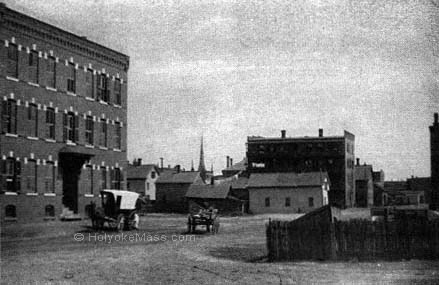
A Corner in South Holyoke.
|
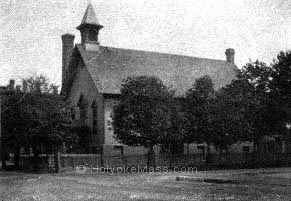
South Holyoke German Church.
|
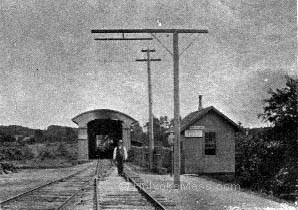
The Old Wilimansett Bridge.
|
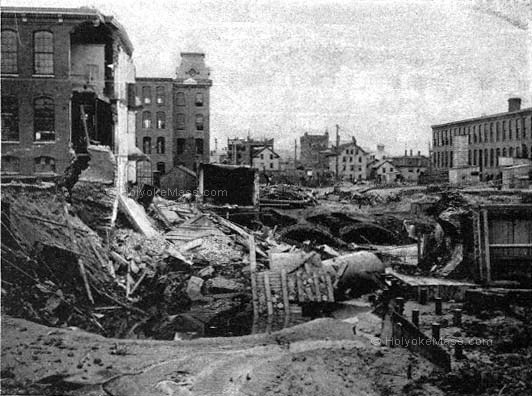
A Canal Washout.
|
© Laurel O’Donnell 1996 - 2006, all rights reserved
This document may be downloaded for personal non-commercial use only
and may not be reproduced or distributed without permission in any format.
This is an edited adaptation from the original publication.
|
|
|